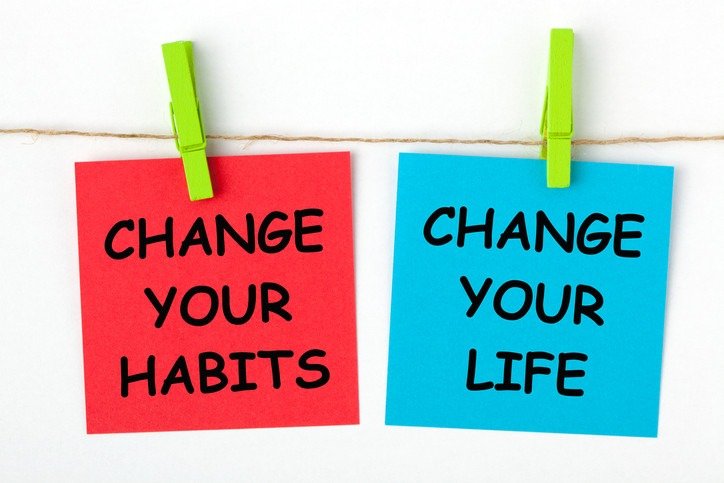Are you thinking of making healthier lifestyle changes?
Whether it's eating better, being more active, or adopting new habits, change can be tough. But embracing healthier routines is worth it. It can boost your energy, improve your well-being, and help prevent health problems like diabetes and obesity. While the journey isn’t always easy, with the right mindset, persistence, and strategies, you can turn your goals into lifelong habits.
Stages of Change: Where Are You?
Understanding which stage you're in can help you make the right steps forward. The journey toward healthier habits typically moves through these four stages:
- Contemplation: Thinking about change
- Preparation: Getting ready to act
- Action: Actively making changes
- Maintenance: Keeping the changes going
Contemplation: Thinking About Change
If you're considering making healthier changes, you're in the contemplation stage. This is when you start imagining how your life might improve with new habits, but you're not quite ready to take the plunge.
You may be in this stage if you:
- Are thinking about change but haven’t started yet
- Believe new habits could improve your health or energy
- Feel unsure how to overcome the roadblocks
Preparation: Ready to Take Action
Once you've made up your mind, you move into the preparation stage. You’re ready to make a plan and start taking steps toward change.
Signs you're in this stage:
- You've decided to make a change and are ready to act
- You've set some goals
- You're preparing to put your plan into action
Action: You've Started Changing
This is where the real work begins! You're actively making changes to your lifestyle.
You may be in this stage if you:
- Have made changes in the past few months, like eating better or moving more
- Are adjusting to your new routine
- Are overcoming challenges along the way
Maintenance: Sticking with It
If you've kept up your new habits for more than six months, you're in the maintenance stage. Your new lifestyle is becoming second nature.
Signs of being in maintenance:
- Your habits feel like part of your routine
- You’ve found ways to stay motivated, even after setbacks
- You're constantly working to improve and avoid old habits
Taking the First Step: From Thinking to Doing
It can be difficult to shift from thinking about change to actually doing it. To help bridge this gap, consider the pros and cons of your current habits. Reflect on how making small changes could positively impact your life.
For example, if you're at risk of developing type 2 diabetes, you might find it easier to stay active and eat well, knowing that these changes could protect you from the disease. Sometimes, understanding the benefits can provide the motivation you need to take action.
Healthy Eating: Pros and Cons
Pros:
- More energy
- Lower risk of health problems
- Weight management
- Feeling proud and setting an example
Cons:
- May need to spend more on food
- More time spent cooking
- Eating less of the foods you love
Physical Activity: Pros and Cons
Pros:
- Improved health
- Increased strength and energy
- Feeling better about yourself
Cons:
- Takes time and energy
- Weather conditions can be challenging
- You might feel self-conscious or nervous about starting
Getting Ready: Creating a Plan
If you’ve decided to make a change, it’s time to plan. Overcoming roadblocks is key to long-term success. For example, if you're worried about time, find ways to fit physical activity into your daily routine, like taking the stairs or preparing meals in bulk. If you're worried about cost, remember that activities like walking are free.
Here are some common roadblocks and solutions:
| Roadblock | Solution |
|---|---|
| "I don’t have time." | Make health a priority by sneaking activity into your day. |
| "Healthy habits are expensive." | Buy in bulk or on sale, and use frozen or canned veggies. |
| "I can’t do it alone." | Get friends or family involved to stay motivated. |
| "I don’t like exercise." | Explore new activities like dancing or gardening that feel fun to you. |
| "I don’t enjoy healthy foods." | Try healthier versions of your favorite meals, like reducing fats and sugars. |
Making It Happen: Taking Action
You've made the decision, and now you're acting on it. Congratulations! To stay on track:
- Review your goals regularly
- Plan for setbacks so they don’t throw you off course
- Reward yourself when you hit milestones
Tracking Progress
Tracking your progress is a great way to stay motivated. Keep a record of what you've done and how it made you feel. Celebrate the small wins along the way, and remember: setbacks are normal! Use tools like the NIH Body Weight Planner to tailor your plan to your personal goals.
Overcome Roadblocks
When challenges arise, remind yourself of the reasons you're working to be healthier. Whether it’s for more energy, better health, or to be a role model for others, keep your 'why' in mind to push through the tough moments.
Staying the Course: Creating a New Routine
Once your new habits are part of your routine, keep things exciting to stay motivated. Incorporate variety in your activities, set new challenges, and find ways to stay engaged, even during tough times.
Add Variety
- Mix up your physical activities, set new goals, and reward yourself.
- Try new recipes or switch up your fitness routine with different activities.
Deal with Setbacks
- Have a plan for unexpected obstacles. If it's too hot outside to walk, head to the mall or try an indoor activity.
- If you slip up, don’t give up! Refocus and get back on track.
Challenge Yourself
- Once you're comfortable with your routine, push yourself further. Add strength training, or cut back on added sugars. Small changes can add up to lasting habits.
The Key to Success
Healthy eating, regular physical activity, and positive habits are lifelong commitments. Stay aware of your goals, adjust as needed, and keep moving forward to enjoy a healthier, happier life.



